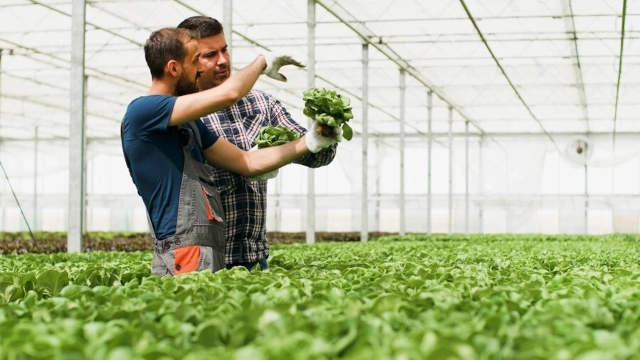Contract Farming Policies in India: Facilitating Farmer-Industry Collaboration
Contract farming has emerged as a successful model that facilitates collaboration between farmers and the industry. This arrangement offers mutual benefits by providing farmers with assured markets and buyers with consistent high-quality produce. In India, contract farming policies have gained traction, promoting agricultural growth and addressing the challenges faced by farmers. With its progressive agricultural landscape, Telangana has witnessed the rise of contract farming services, with Kamala Farms leading the way. In this article, we will explore the significance of contract farming policies in India, specifically in Telangana, and the role of Kamala Farms in fostering farmer-industry collaboration.
Introduction
Contract farming is a mutually beneficial arrangement that establishes a contractual relationship between farmers and agribusinesses. This collaboration ensures farmers have a guaranteed market for their produce, while buyers receive a consistent supply of high-quality crops. Contract farming policies in India, especially in Telangana, have played a significant role in promoting agricultural growth and creating sustainable partnerships between farmers and the industry. Kamala Farms, a leading agricultural enterprise, has actively contributed to fostering this collaboration and driving the success of contract farming services in Telangana.
Contract farming offers several advantages for both farmers and buyers
Market Assurance for Farmers
Contract farming provides farmers with assured markets for their produce. By entering into a contract with buyers, farmers have a guaranteed off-take for their crops at predetermined prices. This market assurance minimizes the risk of fluctuating market prices and provides stability and income security to farmers.
Consistent Supply for Buyers
For agribusinesses and buyers, contract farming ensures a consistent supply of high-quality produce. By collaborating with farmers and specifying quality standards and production techniques in the contract, buyers can maintain product consistency and meet the demands of their customers. This reduces the dependency on volatile market conditions and ensures a reliable supply chain.
Transfer of Technology and Knowledge
Contract farming arrangements often involve the transfer of technology, knowledge, and best practices from buyers to farmers. This exchange enables farmers to adopt modern farming techniques, improve productivity, and enhance the quality of their produce. The access to technical expertise and training empowers farmers to upgrade their skills and stay competitive in the market.
Contract Farming Policies in India
The Indian government has recognized the potential of contract farming in boosting agricultural growth and farmer income. Policies and initiatives have been formulated to encourage and regulate contract farming practices across the country.
Encouraging Farmer-Industry Collaboration
Contract farming policies aim to facilitate collaboration between farmers and agribusinesses. They promote the creation of formal contracts that outline the rights and responsibilities of both parties, ensuring transparency and fairness. These policies incentivize private sector investments in agriculture, leading to improved infrastructure, technology adoption, and market linkages.
Legal Framework and Support
To protect the interests of farmers, contract farming policies provide a legal framework for contract enforcement and dispute resolution. These regulations address pricing, quality standards, and crop rejection concerns. Additionally, government agencies and agricultural extension services offer support in contract formulation, market intelligence, and skill development.
Telangana: A Progressive Landscape for Contract Farming
Telangana, known for its progressive agricultural practices, has embraced contract farming as a means to enhance farmer income and agricultural productivity.
Agricultural Advancements
Telangana’s focus on agricultural advancements, including the adoption of modern technologies, irrigation schemes, and improved crop management practices, has created a conducive environment for contract farming. The state’s favorable agro-climatic conditions and proactive measures have attracted agribusinesses and facilitated collaborations with farmers.
Kamala Farms: Facilitating Farmer-Industry Collaboration
Kamala Farms, a leading agricultural enterprise in Telangana, has been actively involved in contract farming, promoting collaboration between farmers and the industry.
Contract Farming Services
Kamala Farms offers contract farming services that connect farmers with buyers, ensuring a structured and transparent collaboration. Farmers can access markets, negotiate fair prices, and receive technical guidance through these services. Kamala Farms facilitates the entire process, from contract formulation to product delivery, ensuring a seamless and mutually beneficial partnership.
Conclusion
Contract farming policies in India, particularly in Telangana, have facilitated farmer-industry collaboration, driving agricultural growth and income security for farmers. With its expertise and commitment to contract farming services, Kamala Farms has played a pivotal role in fostering this collaboration. By providing market assurance, technical guidance, andsupport, Kamala Farms has contributed to the success of contract farming in Telangana. The state’s progressive agricultural landscape and supportive government initiatives have further bolstered the growth of contract farming services.
Contract farming benefits farmers by providing them with assured markets and access to technology and ensuring a consistent supply of high-quality produce for buyers. This collaboration promotes sustainable agricultural practices, increases productivity, and strengthens the overall agricultural ecosystem.
In conclusion, contract farming policies in India, particularly in Telangana, have paved the way for farmer-industry collaboration, enabling mutual growth and development. With its commitment to contract farming services and expertise, Kamala Farms has played a vital role in facilitating this collaboration. With continued support and implementation of favorable policies, contract farming will continue to flourish, benefitting both farmers and the industry.




